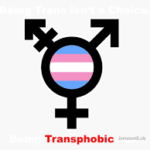Menopause is a natural phase in a woman’s life, but its symptoms can often feel anything but natural. Many women find themselves struggling with everything from hot flashes and mood swings to sleep disturbances and weight gain. As a result, the search for effective relief becomes paramount. One option that has gained traction in recent years is Menopause Bioidentical Hormone Replacement Therapy (BHRT). This article will take you through the ins and outs of BHRT, helping you understand what it is, why it’s worth considering, and how to navigate this journey with confidence.
What is Menopause Bioidentical Hormone Therapy Anyway?
Menopause Bioidentical Hormone Therapy involves the use of hormones that are chemically identical to those the body naturally produces. These hormones are derived from plant sources and crafted to match the molecular structure of human hormones. The primary goal of BHRT is to alleviate the symptoms associated with menopause, such as hot flashes, night sweats, and mood changes. Unlike traditional hormone replacement therapy (HRT), which often uses synthetic hormones, BHRT aims to provide a more natural and individualized approach.Should I Take An Estrogen Blocker With TestosteronePost Op Transsexual
Many women begin to feel the effects of menopause during their late 40s to early 50s, as their bodies produce less estrogen and progesterone. BHRT seeks to balance these hormone levels, offering a customized solution that can be tailored to fit each woman’s specific needs. Patients may receive hormones in various forms, including creams, patches, pills, or pellets, allowing for flexibility in how they manage their symptoms.
Why Women Consider Bioidentical Hormones During Menopause
Women often turn to bioidentical hormones during menopause because they are looking for a safe and effective way to manage distressing symptoms. Many report a sense of frustration with traditional hormone therapies that may have more side effects or do not provide the relief they seek. Bioidentical hormones are marketed as a more natural alternative, with the belief that their chemical similarity to human hormones can lead to fewer adverse effects.
Additionally, the growing body of anecdotal evidence and personal testimonials from women who have experienced positive outcomes with BHRT has fueled interest. Many women appreciate the ability to receive personalized treatment plans that are tailored to their unique hormonal profiles, rather than a one-size-fits-all approach. This customization can make the prospect of hormone therapy feel more appealing and less intimidating.
The Science Behind Bioidentical Hormones Explained
The science behind bioidentical hormones lies in their molecular structure. Bioidentical hormones are created to be identical at the molecular level to the hormones produced by the human body, which theoretically allows for better absorption and compatibility. When these hormones are introduced into the body, they can bind more effectively to hormone receptors, potentially leading to improved symptom relief and fewer side effects.
Research on bioidentical hormones is still evolving, and while some studies suggest they can improve quality of life for women experiencing menopause, more rigorous clinical trials are needed to fully understand their long-term effects. It’s essential to approach BHRT with an informed perspective, understanding that while the science is promising, it may not be the right fit for everyone.
Potential Benefits: Can They Really Help You Feel Better?
Many women report significant improvements in their quality of life after starting BHRT. Some common benefits include reduced hot flashes, improved sleep quality, and enhanced mood stability. Women have also shared that they experience less anxiety, more energy, and even better sexual function. Such benefits can profoundly impact daily living, giving women back a sense of normalcy they may have felt was lost during menopause.
Another advantage of BHRT is its customizable nature. Since every woman’s hormone levels and symptoms are different, a healthcare provider can adjust dosages and formulations to better suit individual needs. For many, this tailored approach makes BHRT a compelling option for managing the often challenging symptoms of menopause.
Understanding Risks: What You Need to Know First
While bioidentical hormones may offer numerous benefits, it’s crucial to consider the potential risks involved. Like any medical treatment, BHRT can have side effects, including headaches, bloating, or mood changes. Some studies have raised concerns about the possible long-term risks associated with hormone therapy, such as an increased risk of certain cancers or cardiovascular issues. It’s essential for women to have an open and honest discussion with their healthcare provider about these risks before starting treatment.
Moreover, the lack of strict regulations surrounding the compounding of bioidentical hormones can lead to inconsistencies in quality and dosage. Since not all practitioners use the same standards, it’s vital to choose a qualified provider who follows established guidelines to ensure that you are receiving safe and effective treatment.
How to Find a Qualified Practitioner for Hormone Therapy
Finding the right practitioner for menopause bioidentical hormone therapy is crucial for a successful experience. Start by seeking out healthcare providers who specialize in hormone therapy, such as endocrinologists, gynecologists, or integrative medicine practitioners. Look for professionals who have extensive experience in prescribing BHRT and can provide you with a thorough initial assessment, including hormone testing and symptom evaluation.
Don’t hesitate to ask questions about their approach to BHRT, treatment plans, and how they monitor and adjust therapies over time. Additionally, seeking recommendations from friends, family, or online support groups can help you find a practitioner who is both qualified and well-reviewed. Remember, this is about your health, so taking the time to find the right fit is essential.
Real-Life Experiences: Women Share Their Stories
Hearing from women who have undergone BHRT can provide valuable insights into what to expect during the process. Many women share stories of feeling like themselves again after experiencing debilitating menopausal symptoms. They often report that BHRT has helped alleviate hot flashes, improved their mood, and restored their energy levels, allowing them to engage more fully in their lives.
However, it’s important to note that experiences can vary widely. Some women may find BHRT to be life-changing, while others may not experience the same level of relief. These personal accounts highlight the importance of individualized treatment plans and the need for ongoing communication with healthcare providers throughout the therapy process.
Tips for Navigating Your Hormone Therapy Journey
Navigating BHRT can feel daunting, but there are several tips that can help make the journey smoother. First, educate yourself about menopause and hormone therapy options before your initial consultation. Having knowledge about what BHRT entails will empower you to ask informed questions and actively participate in your treatment plan.
Second, keep a symptom diary to track your experiences before and during treatment. This can help you and your provider better understand how your body is responding to therapy and make necessary adjustments. Lastly, stay connected with support networks, whether through friends, family, or online communities. Sharing experiences and learning from others can provide comfort and reassurance as you navigate this significant transition.
Menopause can be a challenging time, but Menopause Bioidentical Hormone Replacement Therapy offers a potential path to relief for many women. By understanding what BHRT is, its benefits and risks, and how to find qualified professionals to guide you, you can make informed choices about your health. Remember that every woman’s journey is unique, and seeking personalized treatment can help you regain control over your menopausal experience. Embrace the process, stay informed, and connect with others who are on a similar journey. You’re not alone in this!


